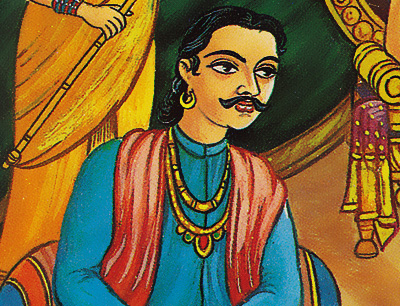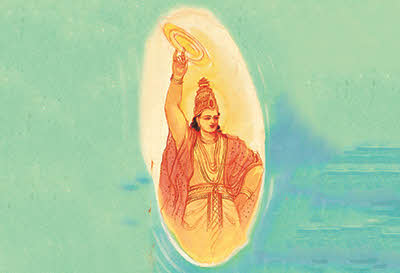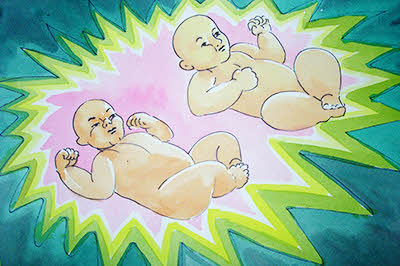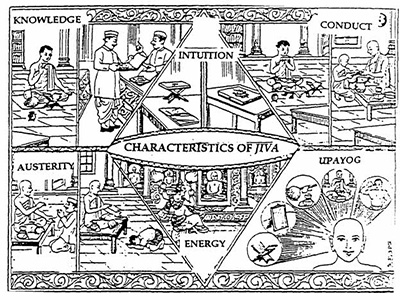
Then Sambhinnamati, like the night before the new moon, a heap of darkness of exceeding wrong belief, whose mind was like poison, said: “Well said! Well said! Svayambuddha. You desire the Master’s welfare, for intention is inferred from speech like food from vomiting. Only hereditary ministers like you, no others, speak thus for the pleasure of the Master who is always sincere and gracious. Continue reading “Exposition of the Carvaka system (Materialist)” »
Exposition of the Carvaka system (Materialist)
Fourth Incarnation as Mahabala

When he died from Saudharma, then he was born as a son of King satabala, the crest-jewel of the Vidyadharas, by his wife Candrakanta, in the West Videhas, in the province Gandhilavati, on Mt. Vaitadhya, in the country named Gandhara, in the city Gandhasamrddhaka. He was exceedingly strong, and was named ‘Mahabala’ because of his strength. Protected by guards and cherished, he gradually grew up like a tree. Gradually filled with all the arts, like the moon with digits, highly distinguished, he became a festival to the eye of the people. Continue reading “Fourth Incarnation as Mahabala” »
Second & Third Incarnation

SECOND INCARNATION
As a result of his gift to the munis he became a twin in the Uttarakurus, who have the period of pure happiness present, on the north bank of the river Sita, to the east of the Jambu tree. There people wish to eat at the end of the fourth day, and have two hundred fifty-six ribs. They are born as twins, are three gavyutis tall, live for three palyas, bear children toward the end of life, have slight passions, and are free from self-interest. Continue reading “Second & Third Incarnation” »
Sermon – Part 2

Good conduct is defined as the rejection of sinful activities. It is twofold: partial (desavirati) and total (sarvavirati).39 The five lesser vows (anuvrata), the three meritorious vows (gunavrata), the four disciplinary vows (siksavrata) are considered the twelve fold partial reduction. Among these, avoidance of injury, lying, stealing, impurity, and possessions in their grosser forms are called by the Jinas the ‘lesser vows.’ The three ‘meritorious vows’ are: the limitation of travel, the limitation of things of single and repeated use, and the limitation of purposeless injury. The four ‘disciplinary vows’ are tranquility, limitation to one place, fasting, and living like a muni, the distribution of alms. Continue reading “Sermon – Part 2” »









